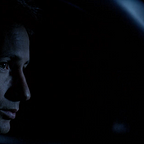In the play, Waiting for Godot, Samuel Beckett uses many techniques in order to express duality. He does this for several reasons. Firstly, using pairs, for example Vladimir and Estragon, Pozzo and Lucky, or even the two acts of the play itself, emphasizes the arbitrariness and 50/50 chances of the play: Godot may or may not come, if Vladimir and Estragon hang themselves the bough may or not break. Dialogue is also used to this effect. Duality is also an important part of the play because it allows for the use of foils; Vladimir and Estragon are even more interesting characters when compared with each other. The use of two people together also allows them to identify each other’s existence; Estragon depends on Vladimir to remind him of what happens, as he easily forgets, and Vladimir needs Estragon for company. Lastly, pairs are used to show the polarity of existence; pairs such as life-death, present- past, sight-blindness, and waiting-going show how random and ridiculous modern life is. Throughout the play, anything to express duality is used, from characters, to situations, to abstract concepts.
The play owes much of it’s absurdity to the use of pairs. Notice all the two-person arguments, back- and-forth dialogue, and silly questions with inadequate answers. Many phrases and questions in the play demand a response to complete them: “ ESTRAGON: Is that all? POZZO: Encore!”. Also, it is important to realize that practically all the characters in the play have a companion: Vladimir has Estragon, Pozzo has Lucky, the boy has his brother. The only one who doesn’t have a partner is Godot, but then he is the exception to all rules after all! The allusions to the Bible refer always to pairs: there’s Cain and Abel, and the two thieves. The duality is also present in the situations of the characters: “VLADIMIR: One is supposed to have been saved and the other. . . damned.” One thief was saved, the other damned, but for no discernible reason. God rejected Cain and favoured Abel on seemingly arbitrary grounds. Vladimir is never beaten, but Estragon is beaten every day. The boy is not beaten, but his brother is. Snaking through Lucky’s speech are the words: “for reasons unknown” and that’s a good response for much of what happens in this play.
Using duality allows for many interesting foils. The best example of this is with Vladimir and Estragon. While Vladimir is very much in control, Estragon seems to be simply drifting around. Vladimir has a certain degree of pride but Estragon has no problem playing the beggar. “ESTRAGON: you’ve done with the. . . you don’t need the bones now, Sir?” Vladimir has faith in Godot, Estragon doesn’t really know what to think. Vladimir has a decent memory, Estragon has almost no memory. Perhaps the biggest difference between them is in their types of intelligence; Vladimir is more intellectual (though he’s no Einstein), and Estragon is much more emotional. Vladimir attempts to bring some logic into his life, while Estragon clearly has given that up a long time ago. Pozzo and Lucky also provide interesting foils for each other. Pozzo comes off as pompous windbag with a great notion of self-importance, while Lucky is clearly a submissive man who never talks, and whose self-deprecating conduct has reduced him to a mere pack animal. Their foil shows both the type of individual that is oppressed, and the individual who serves as the oppressor.
An important part of duality in this play is the fact that none of the characters can really exist without their counterpart. Each character is missing something that the other possesses. Estragon depends on Vladimir to relay to him what happened the previous day, while Vladimir needs Estragon to provide him with some company and conversation. Often they consider leaving one another: “ESTRAGON: Perhaps it would be best if we parted”, but in the end they will always remain, for they need each other. This is also shown in Pozzo and Lucky’s relationship: Pozzo needs someone to order around, to do all the heavy work; he’s incapable of doing it himself. Lucky has grown so that he must serve someone or else die from lack of action. This need of the characters to be together is important because alone there is no one to confirm their existence, and they might as well cease to exist.
Another way in which Beckett explores duality is with polarities. There are many extreme examples of opposites in the play: “ESTRAGON: My left lung is very weak […]. But my right lung is sound as a bell!” Also in the play are situations where the characters do the opposite of what they say. “ESTRAGON: Let’s go” They do not move. Another example of contrasting aspects are sight versus blindness. Pozzo goes blind for no reason, where before his sight was fine. Life versus Death is a big part of the play, and the characters even debate killing themselves from time to time. Perhaps the most important polarity in the play is waiting versus leaving. The characters spend the whole play waiting, and half that time debating whether they should stop waiting and go. One of Beckett’s main concerns in his works is with the polarities of existence, which is yet another reason why he used
many couples in the play.
In this work, the theme of duality is heavily developed. The author uses pairs to make absurd contrasts between characters, either in their dialogue or their actions. Foil is used to make the characters very different from each other, yet dependant on each other as well. The use of opposites throughout the entire play serves not only make the play ridiculous, but to comment on society and humanity: polarities like Good and Evil need each other to exist for how can we truly say something is good without the reverse to compare it to?
